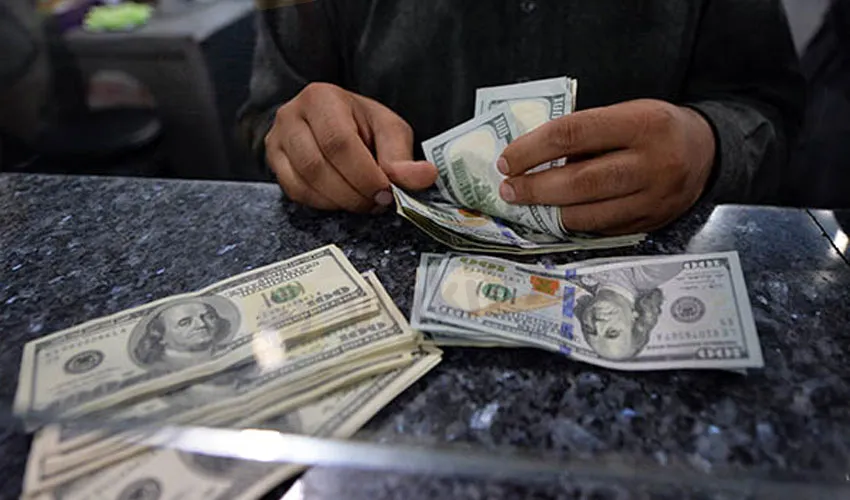简体中文
繁體中文
English
Pусский
日本語
ภาษาไทย
Tiếng Việt
Bahasa Indonesia
Español
हिन्दी
Filippiiniläinen
Français
Deutsch
Português
Türkçe
한국어
العربية
Forex trading: 7 ways to reduce your risk
Abstract:Forex trading is one of the most popular forms of investment in Africa, especially amongst young people. It is relatively low-cost, available 24 hours a day, and can be accessed from both mobile devices and computers. Anyone with a mobile phone and 10 dollars to spare can get involved.
Forex trading is one of the most popular forms of investment in Africa, especially amongst young people. It is relatively low-cost, available 24 hours a day, and can be accessed from both mobile devices and computers. Anyone with a mobile phone and 10 dollars to spare can get involved.

But Forex trading is high-risk speculation and 60-90% of traders will lose money, depending on their Forex broker. Most traders lose money because they haven‘t created (or don’t follow) a risk-management strategy that keeps losses to a minimum.
Creating a successful risk-management strategy takes time, education, and patience, but there are a few simple ways to minimise your risk.
Use a well-regulated broker
This may seem like an obvious one, but the number of beginner traders who fall for Forex trading scams and/or trade with unregulated brokers is huge. Beware brokers or “Forex experts” who contact you over social media with promises of guaranteed returns. All well-regulated brokers will list their licences at the bottom of their website, and it is only a matter of a few clicks to verify their regulated status with the relevant authorities. Well-regulated brokers will also offer negative balance protection, so you can never lose more than you have in your trading account.
Test your strategy with an unlimited demo account
All brokers will offer a demo account, which behaves exactly the same way as a live trading account except the money is virtual. Most good brokers will offer a demo account that never expires. Having an unlimited demo account means you can test your strategies and practice what you have learnt without taking any risks at all.
Keep your leverage low
Once you start trading with a live account, its important to be aware of the leverage you are using. Some brokers will offer leverage of 1:1000 or even 1:2000, and while multiplying your trading capital by 1000 or 2000 may seem like a good idea, the multiplying effect of leverage also applies to any losses you make. Best to start with 1:100 as a maximum until you are comfortable with the effect leverage has on your trading.
Trade the Majors
The “major” Forex pairs are the most traded currency pairs in the world, and they all involve the US Dollar: EUR/USD, USD/JPY, GBP/USD, and USD/CHF. These pairs are generally the most stable too. Most brokers will also offer “minor” pairs and “exotic” pairs too, such as EUR/TRY (Euro/Turkish Lira) or AUD/MXN (Australian Dollar/Mexican Peso). These exotic pairs are more volatile and your trading costs will be higher than with majors.
Stay away from crypto
Many Forex brokers will also offer cryptocurrency CFDs, such as BTC/USD (Bitcoin/US Dollar). Leverage will usually be very low, as cryptocurrencies are notoriously volatile. But price changes in cryptocurrencies pairs can be huge and unpredictable, and the risk of “wiping out” your trading account is much higher than with normal currency pairs.
Use a good copy-trading service
Many beginners do not have the time to watch the markets all day. Thankfully, many brokers have copy-trading services. Copy-trading brokers allow beginners to copy the trades of more experienced traders, who then take a small commission from the profit. Most copy-trading brokers will provide a breakdown of each experienced brokers success rate, risk profile and maximum single loss (called a “drawdown”), this allows beginners to copy a trader which suits their requirements.
ALWAYS use a stop-loss
The final tip for preventing major losses in Forex trading is to always use a stop-loss on every trade you open. A stop-loss will automatically close your trade once the price hits a pre-defined level. Human instinct is to hold on to a losing trade, hoping it will become profitable. Unfortunately, this is usually not the case. A stop-loss can prevent a losing trade from wiping you out, or can lock in a modest profit, and is one of the most powerful tools in a traders arsenal.
Disclaimer:
The views in this article only represent the author's personal views, and do not constitute investment advice on this platform. This platform does not guarantee the accuracy, completeness and timeliness of the information in the article, and will not be liable for any loss caused by the use of or reliance on the information in the article.
WikiFX Broker
Latest News
Pepperstone Sponsored the "Aston Martin Aramco Formula One Team"
ACY Securities Integrates MetaTrader 5 to Enhnace Copy Trading Service
Soegee Futures Review: Should You Trust This Broker?
Malaysian Pilot Loses RM1.36 Million in UVKXE Investment App Scam
Indonesia officially joins the BRICS countries
Attention! Goldman Sachs Cuts Gold Target to $2910
Inflation Rebounds: ECB's Big Rate Cut Now Unlikely
Carney \considering\ entering race to replace Canada\s Trudeau
High-Potential Investments: Top 10 Stocks to Watch in 2025
US Dollar Insights: Key FX Trends You Need to Know
Currency Calculator






